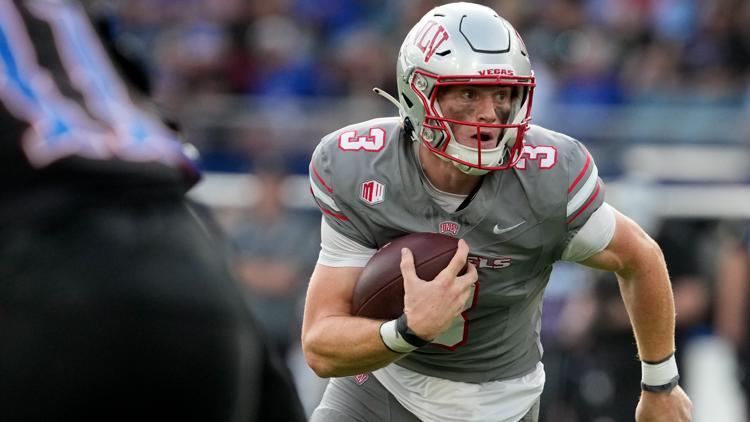The College Quarterback’s $100,000 NIL Dispute: Is the Current System Fair?

In a shocking turn of events, UNLV quarterback Matthew Sluka has decided to sit out the rest of the season due to a dispute over a $100,000 NIL payment that was promised but never paid. Sluka’s agent, Marcus Cromartie, revealed that an assistant coach at UNLV had promised the payment to Sluka when he agreed to transfer from Holy Cross to the Rebels last winter.
This incident has highlighted the complexities and challenges that arise in the new era of college football where athletes can now be compensated for their name, image, and likeness. With the NCAA lifting its ban on athlete compensation in 2021, players have more opportunities to monetize their talents, but issues like the one faced by Sluka demonstrate the need for clearer regulations and ethical practices.
Cromartie explained that Sluka was unable to sign a formal NIL contract initially due to his ongoing degree completion at Holy Cross. Despite verbal assurances of the payment, no written contract was ever put in place, leading to the current dispute. Efforts to resolve the matter with UNLV’s collective and head coach Barry Odom were unsuccessful, with proposed payment plans falling short of the promised amount.
As the situation unfolds, questions arise about the fairness and transparency of the current system. Cases like Sluka’s, along with similar disputes involving other college athletes, highlight the need for clearer guidelines and accountability measures to ensure that players are treated fairly and receive the compensation they are promised.
Sluka’s decision to step away from the season underscores the growing pains of the evolving landscape of college athletics. As athletes navigate new opportunities for financial gain, it is essential to establish a framework that protects their interests and upholds ethical standards across the board.
As college sports continue to adapt to the changing dynamics brought about by NIL opportunities, it is crucial for stakeholders to collaborate and devise a system that promotes fairness, transparency, and respect for the athletes who drive the success of the programs.
Ultimately, Sluka’s case serves as a stark reminder of the challenges and complexities that come with the new era of college athletics. As the debate around athlete compensation continues, it is imperative to prioritize the well-being and fair treatment of the players who make the sport possible.




